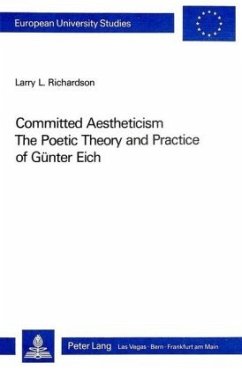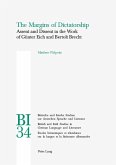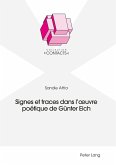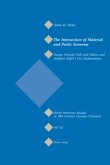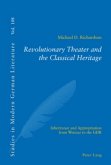This study investigates the antithetical functions of aestheticism and political commitment in Günter Eich's poetic theory and poetry, from the nature poetry of the 1930s to the anti-poetry of the 1960s. In an analysis of selected poems and of all known speeches, essays, book reviews, and notes on poetry, Dr. Richardson closely examines an important controversial issue in Eich scholarship and criticism: Was Günter Eich a poetic aesthete, aloof from the social and political turmoil of his time, or was he really an engaged poet who struggled against the reactionary politics of German society and the dehumanizing forces of the modern world? This study concludes that Eich is neither a pure nor a political poet, but an advocate of committed aestheticism, in which pure art is cultivated to counteract politics and power.
Bitte wählen Sie Ihr Anliegen aus.
Rechnungen
Retourenschein anfordern
Bestellstatus
Storno

